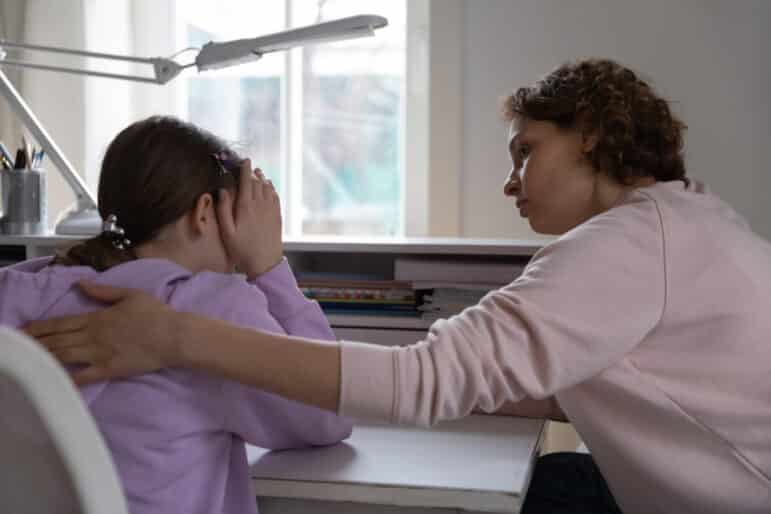Need help? Start on our program sites:
In every family, disconnections—or ruptures—are a normal part of life. These can be small misunderstandings, disagreements, or moments when feelings get hurt. It’s common and happens to all families! “Repair” is how we fix that disconnection, come back together, and strengthen our bond.

“Rupture and repair” describes how emotional connections can break and be repaired intentionally. Healthy relationships don’t avoid conflict; they embrace the important process of repair.
For foster, adoptive, and kinship parents, mastering repair is crucial. Children who have experienced trauma or attachment issues need repair moments. These moments help them heal, build trust, and form strong connections.
Here’s why repair matters in your home:
- Ruptures are opportunities: Reframe disconnections as opportunities to mend connections with empathy and compassion. Past trauma and different communication styles can sometimes lead to amplified disconnections. In such cases, repair is even more vital for growth.
- “I’m sorry” is powerful: A genuine apology is essential for repair. Taking responsibility for your actions or acknowledging a child’s hurt can work wonders. A genuine “I’m sorry” shows the child their feelings matter and demonstrates your commitment to the relationship.
- Actions speak louder: Genuine repair goes beyond saying “I’m sorry.” After you apologize, create a safe space for your child to share their feelings without judgment. This may involve:
- Actively listening to them.
- Asking gentle questions to understand their view.
- Reflecting their feelings to show you understand.
- Making amends through action or a promise to do better next time.
- Building Resilient Relationships: This process needs patience and a willingness to face discomfort. By engaging in rupture and repair, you teach your children valuable lessons:
- Relationships can bounce back.
- Conflicts will happen.
- Conflicts can be resolved.
Ultimately, mastering this art of reconnection is an act of love and healing. It turns challenges into deeper understanding and strengthens your family’s bond.
Recommended Resources
From the Resource Library
- The Connected Parent: Real-Life Strategies for Building Trust and Attachment, by Karyn Purvis, Ph.D. & Lisa Qualls, with Emmelie Pickett
- Dancing with a Porcupine: Parenting wounded children without losing your self, by Jennie Owens
- The Invisible String, by Patrice Karst
Tip Sheet
Training From Champion Classrooms
